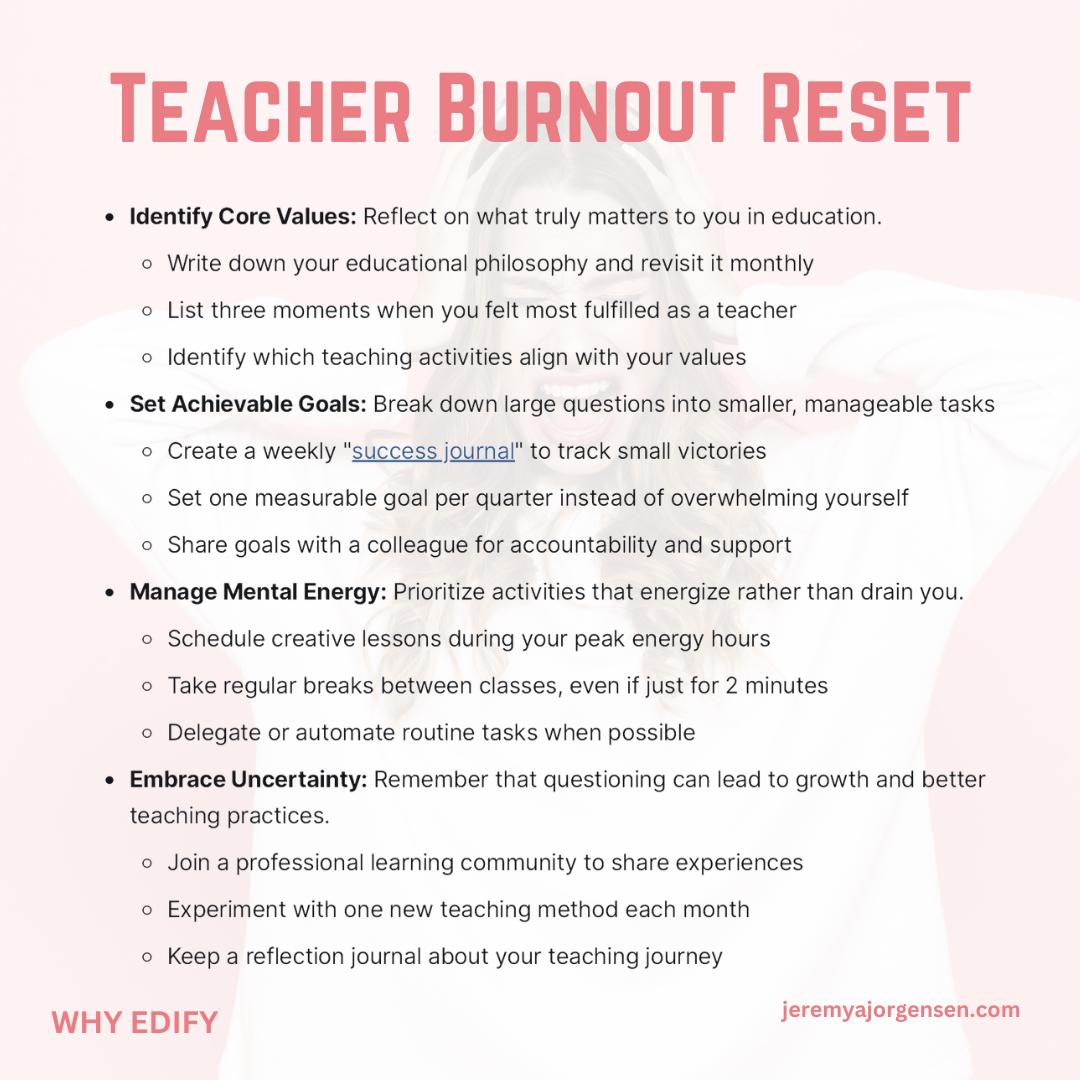Teacher Burnout and Existential Crisis: Classroom Support and Strategies
Discover practical strategies for teachers dealing with existential crisis and burnout. Learn how to navigate professional challenges, rediscover your purpose, and transform doubt into growth opportunities in education.

As educators, we often find ourselves questioning our purpose and impact. An existential crisis, characterized by deep questioning about the meaning and purpose of one's life or work, is more common in teaching than you might think. It often involves feelings of uncertainty, anxiety, and a loss of direction in one's career. Understanding the causes of these crises can help us navigate these challenging times and find renewed purpose in our profession.
Common Triggers for Teachers
- Student Disengagement: When faced with consistently uninterested students, we may question our effectiveness and purpose. This is something most teachers, including myself, struggle with daily.
- Policy Changes: Frequent shifts in curriculum or teaching methods can leave us feeling uncertain about our role.
- Resource Limitations: Lack of necessary materials can lead to frustration and helplessness. Social media outlets are full of teachers looking for support.
- Burnout: The emotional demands of teaching can lead to exhaustion and career doubts. It’s stressful to keep searching for balance when there is seemingly none to be found.
- Underappreciation: Feeling undervalued can spark doubts about our professional worth.
- Technological Challenges: Rapid tech advancements may make us feel obsolete. It can be challenging for old dogs like me to learn new tricks.
- Ethical Conflicts: Situations that clash with our values can trigger deep questioning. This can occur during shifts in the political climate.
Strategies for Teachers
Recognizing these triggers is the first step. Here are some strategies to help:
- Identify Core Values: Reflect on what truly matters to you in education.
- Write down your educational philosophy and revisit it monthly
- List three moments when you felt most fulfilled as a teacher
- Identify which teaching activities align with your values
- Set Achievable Goals: Break down large questions into smaller, manageable tasks.
- Create a weekly "success journal" to track small victories
- Set one measurable goal per quarter instead of overwhelming yourself
- Share goals with a colleague for accountability and support
- Manage Mental Energy: Prioritize activities that energize rather than drain you.
- Schedule creative lessons during your peak energy hours
- Take regular breaks between classes, even if just for 2 minutes
- Delegate or automate routine tasks when possible
- Embrace Uncertainty: Remember that questioning can lead to growth and better teaching practices.
- Join a professional learning community to share experiences
- Experiment with one new teaching method each month
- Keep a reflection journal about your teaching journey

Conclusion
Remember, an existential crisis can be a "vital pause" - an opportunity to reassess and chart a new course. It's not about having all the answers, but about taking steps towards a more meaningful life and fulfilling career in education.
By recognizing the signs of an existential crisis and applying these strategies, both teachers and non-teachers can transform moments of doubt into opportunities for growth and renewed purpose.
❤ Enjoy this Article?
🍵 Show Your Support and 🤗 Share It



